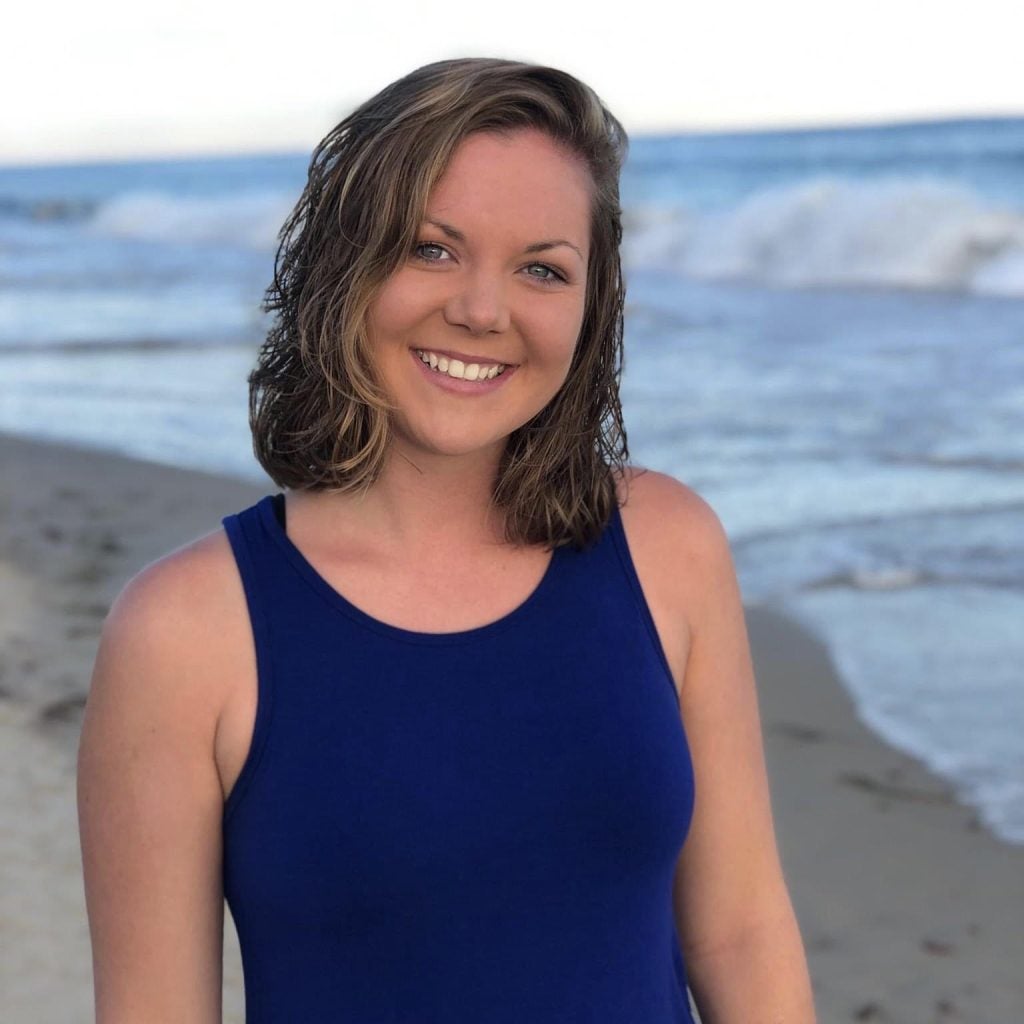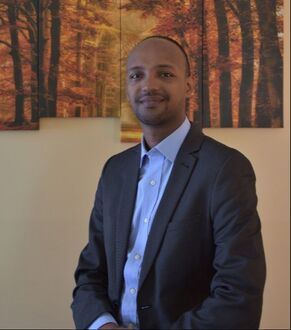
On behalf of the the DWELL Grants committee, we are thrilled to announce the proposals that were selected for the 2021-22 Student Research Grant Funding cycle. The goal of this research funding is to support and promote public science communication and scientific literacy. DWELL projects develop research pertaining to the communication of science, including digital science communication, community-engagement with science, public interest and advocacy, science communication design, as well as technical and creative science writing.
For Shore: Ocean Energy Explained (Podcast)
Abbey is working to publish a podcast, featuring a mini series called For Shore: Ocean Energy Explained that introduces offshore wind to audiences in the United States. Season 1 of the podcast will be focused on offshore wind, which is seen by many as a great solution to power our coasts while simultaneously fighting climate change. However, not everyone is thrilled by this source of renewable energy. Some fishermen are worried about the offshore wind industry’s impact on their livelihoods, bird enthusiasts are worried about the turbine blades hurting birds in flight, coastal communities are concerned about the impact the turbine structures would have on their property values, and more. In each podcast episode, Abbey will dive into the details around a new topic related to offshore wind. The podcast will serve as a neutral source of information for the public, so they can learn about the science behind offshore wind and all of the opinions surrounding it in one place, thus allowing them to form their own opinions on the subject. Abbey’s hope is that once people have the information, they can engage in offshore wind discussions as informed citizens who can influence the future of their own oceans. Future seasons of the show could dive into other forms of marine renewable energy, coastal resilience issues, aquaculture…as long as it’s “tide” to our oceans, Abbey is ready to “dive in!”

About Abbey Greene
Offshore Wind and Blue Economy Fellow, MESM Graduate Student, University of Rhode Island
As the Offshore Wind and Blue Economy Fellow at the University of Rhode Island Coastal Resources Center, Abbey is embedded in the marine policy world surrounding offshore renewable energy, aquaculture, coastal resilience, and more. Abbey focuses her work specifically on communication initiatives, public engagement, and project implementation. She is passionate about responsible, equitable access to our oceans and the sustainable management of our planet’s resources. Abbey has an extensive background in communications, having received her bachelor’s degree in journalism from Northern Vermont University — Lyndon in 2017. Since her graduation, she has worked with Jackson Wild, WGBH, the United Nations Development Programme, and the Convention on International Trade in Endangered Species of Wild Fauna and Flora (CITES). Abbey is currently studying to obtain her Master’s in Environmental Science and Management with a focus on environmental policy and plans to graduate in May of 2022.
The Death Behind the Smiles: The Chemicals We Live With
Asta is developing an immersive creative art piece depicting the dangers of of per- and polyfluoroalkyl substances. Many consumers are oblivious to these toxic chemicals, such as Per- and polyfluoroalkyl substances (PFAS), that we interact with every day. As consumers help their bulk production using goods loaded with the chemicals as well as their leakage into the environment through our wastes. Exposure to these pollutants occur through physical, chemical, and biological interactions. The glamorous advertisements made on several products loaded with PFAS portray a happy life that completely hides the destructive nature of these toxic chemicals. In the environment, the chemicals tend to accumulate in different environmental matrices. Also, PFASs are “forever chemicals” and not only remain in environmental systems, they even bioaccumulate exponentially along the food chain eventually ending up in our own food and drinking water. PFASs are associated with various harmful health effects including immune and nervous systems impairments, certain types of cancer, high cholesterol level etc. The proposed immersive experience project works to personalize this issue to raise awareness and advocate for behavioral change on the consumer side as well as empower communities to get involved and influence policy making aimed at controlling these substances.

About Asta Habtemichael
PhD student in Chemical Oceanography at the Graduate School of Oceanography at the University of Rhode Island
Asta is a Ph.D. student in Biological and Environmental Sciences/Chemical Oceanography at the University of Rhode Island. He holds a Master of Arts in Marine Affairs from the University of Rhode Island (2017-2019) and Bachelor of Sciences in applied marine sciences from the College of Marine Science and Technology in Massawa-Eritrea. Asta’s research interest is the impact of persistent pollutants on aquatic organisms and science communication on pollution risk, policies, and mitigation approaches as to benefit local communities. His research strives to include inclusive approaches to facilitate the utilization of local knowledge in developing scientific solutions. During his master’s tenure with Dr. Mendenhall he researched transboundary protected areas and integration of local knowledge in East Africa. Asta’s past research included uptake of heavy metals in mangrove mad flats, effects of ocean acidification on Mullet fish and crabs, and ecological health and fisheries assessment projects in Eritrea. His current work focuses on the fate, transport, and bioaccumulation of contaminants of emerging concerns, particularly organophosphate esters (OPEs) and per- and polyfluoroalkyl substances (PFASs) in the Narragansett Bay. He also looks into how much the lab science is being transferred to local communities by exploring the gaps in community engagement for different community structures. He is also actively engaged in activities that work towards making STEM fields more inclusive of underrepresented groups, particularly ocean science.
